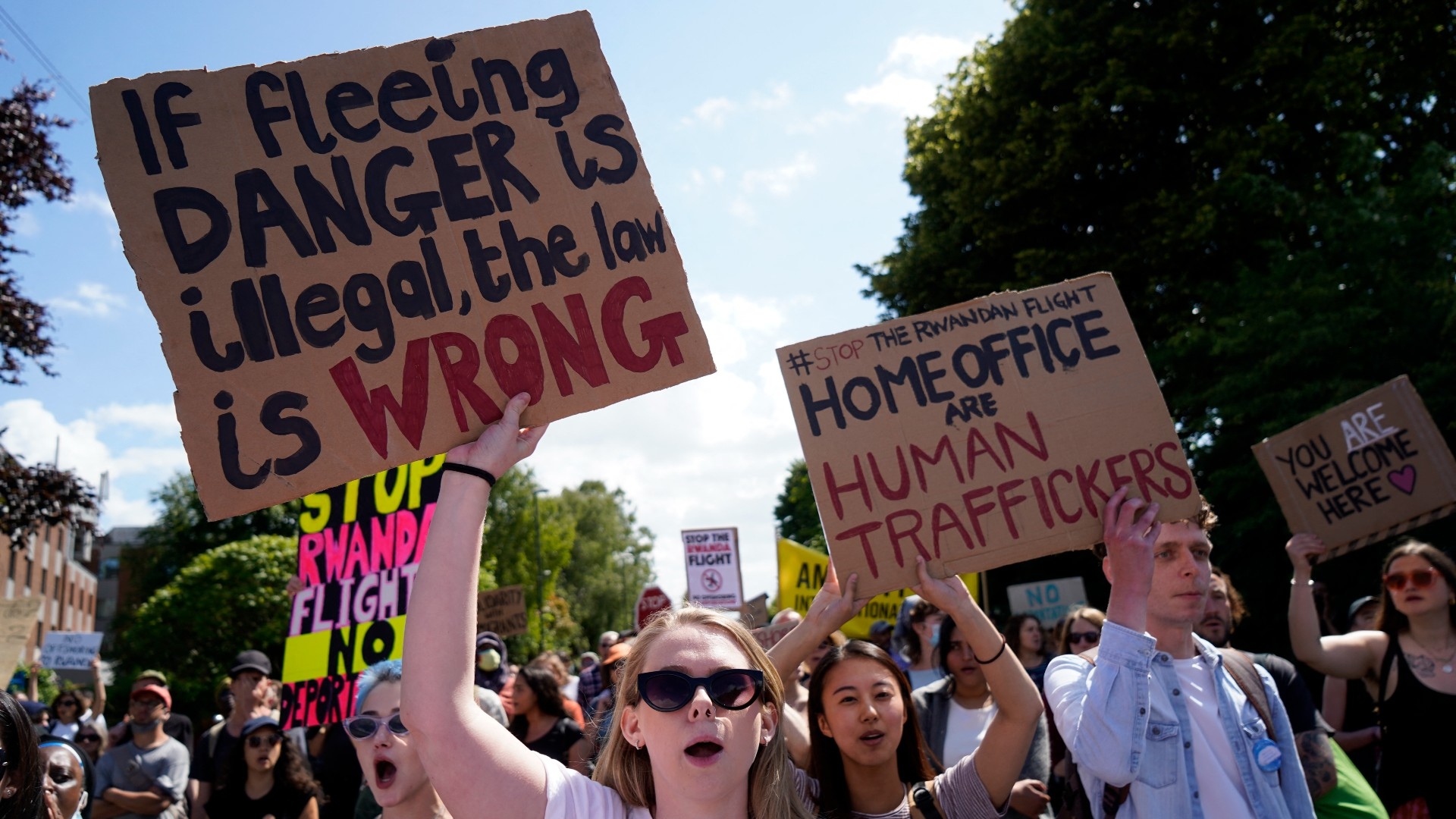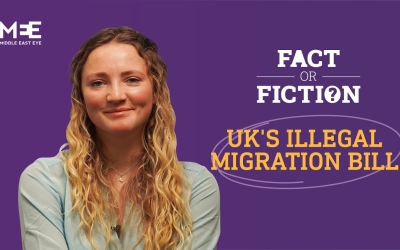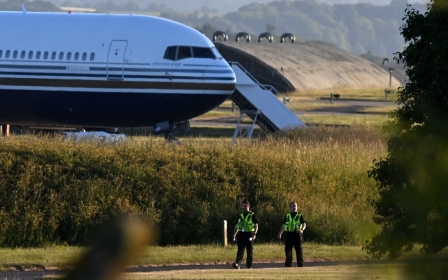UK plan to deport asylum seekers to Rwanda unlawful, court rules

The UK government's plan to deport asylum seekers to Rwanda has been ruled unlawful by the Court of Appeal.
Three senior judges, Lord Burnett, Sir Geoffrey Vos, and Lord Justice Underhill, made the ruling on Thursday.
In December, the high court in London ruled the plan to send to Rwanda asylum seekers who arrive in the UK on small boats lawful. But an appeal was lodged by asylum seekers and a rights group, and supported by groups including the UN’s refugee agency, UNHCR.
The appeal was brought by 10 asylum seekers from Syria, Iraq, Iran, Sudan, Albania, and Vietnam, as well as the charity Asylum Aid. All the asylum seekers arrived in the UK by crossing from France via the English Channel in small boats.
The cases were heard at the Court of Appeal between 24 and 27 April, during which the UNHCR was permitted to make submissions as an "interested party" and to file evidence.
New MEE newsletter: Jerusalem Dispatch
Sign up to get the latest insights and analysis on Israel-Palestine, alongside Turkey Unpacked and other MEE newsletters
By a majority, the court accepted the appeal on the grounds of whether Rwanda was a safe third country.
The majority of judges found that deficiencies in Rwanda's asylum system meant that there were substantial grounds to believe that people sent to Rwanda would be returned to their home countries, where they faced persecution and inhumane treatment.
'Tonight, we hope [refugees] can sleep a little more peacefully knowing they will not be torn apart from loved ones and forced onto a plane imminently'
- Katie Morrison, Safe Passage International
It added that these people in fact had a good claim for asylum.
It ruled that sending anyone to Rwanda would constitute a breach of Article 3 of the European Convention on Human Rights (ECHR), which UK parliamentary law rules that the government must comply with.
In a statement sent to Middle East Eye, Home Secretary Suella Braverman said that the government would not "take a backward step".
"The Court of Appeal have been clear that the policy of relocating asylum seekers to a safe third country for the processing of their claims is in line with the Refugee Convention," she said.
“While we are disappointed with their ruling in relation to Rwanda’s asylum system, I will be seeking permission to appeal this."
Braverman added that she and the Rwandan government "remain fully committed to this policy".
Katie Morrison, CEO at Safe Passage International said the ruling was "excellent news" for those living in fear of removal to Rwanda.
“Tonight, we hope they can sleep a little more peacefully knowing they will not be torn apart from loved ones and forced onto a plane imminently," she told Middle East Eye.
“While the fight in the courts is not over yet, this decision is a further blow to the government’s awful [Illegal Migration Bill] that would destroy the UK’s asylum system. Instead of focusing on punishing people who come here to seek safety and family, the government should be opening safe ways for refugees to reach the UK."
"It’s time the Rwanda plan is officially scrapped, and this bill along with it.”
'Victory for compassion'
The Lord Chief Justice, the Lord Burnett of Maldon, reached the opposite conclusion as his peers.
He stated that assurances put forward by the Rwandan government and in the agreement between the two countries were sufficient, and that "there is no real risk that asylum-seekers relocated under the Rwanda policy will be wrongly returned to countries where they face persecution or other inhumane treatment".
'It is not so much about Rwanda, as it is about this government continuing to attempt to outsource its responsibilities for providing protection'
- Daniel Sohege, Stand For All
The policy, which was first announced in April last year, was widely condemned and later ran into legal problems, with the first attempted flight in June being blocked by court action.
Two Kurdish refugees, one from Iran and another from Iraq, spoke to MEE last year after narrowly avoiding being flown to Rwanda following the last-minute legal challenge.
One of them said he was placed on the flight to head to a country he knew nothing about, before being told it had been cancelled.
"Whenever I see any plane take off, it's just like I am inside that plane. I am still so terrified," he said from an immigration removal centre near the airport.
Refugee groups told MEE in October that the policy was likely to be illegal under international law.
Braverman has repeatedly stated her willingness to confront legal blocks on the government's policies, even threatening to withdraw from the ECHR.
Daniel Sohege, director of consultancy firm Stand For All, said Thursday's ruling simply confirmed what many people had been saying since was first proposed and that it was just a facet of a wider problem within the government's "performative" approach to asylum seekers.
"It is not so much about Rwanda, as it is about this government continuing to attempt to outsource its responsibilities for providing protection," he told MEE.
"This government needs to stop playing at performative policies and start taking the action which is inevitably needed, investment into the UK's asylum system to make it simpler and safer to access, and process applications faster. Anything else is just going to lead to more people left in limbo and suffering, at greater expense to the taxpayer."
Middle East Eye delivers independent and unrivalled coverage and analysis of the Middle East, North Africa and beyond. To learn more about republishing this content and the associated fees, please fill out this form. More about MEE can be found here.





